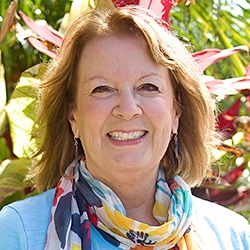
Search Results: healthy, and relationships
-
-
Join Eric, as he reveals a clear path from heartbreaking intimate relationships to joyful, thriving intimate relationships. Eric uses his passion for helping singles heal from their past relationships, to help you to experience more ease, joy and mutuality in future relationships.
-
Little negative impacts can become big when left unattended. Watch for things like using a sharp tone, choosing not to share something, going along with something when you don’t really want to, trying to convince your partner, impulsively turning away, shrinking, losing access to parts of yourself, hiding, daydreaming about a different life, and judgmental thoughts. Instead, shift the dynamic: take responsibility, provide empathy, and commit to change.
-
Join Eric Bowers in transforming past relationship pain, coming alive in community and creating thriving relationships. This 12 session Telecourse recording brings together Eric's passions for Nonviolent Communication, Attachment Theory and Interpersonal Neurobiology.
-
Roxy Manning emphasizes positive relationships in parenting, highlighting acceptance, understanding, and compromise. She stresses the importance of being aware of one's needs, attuning to the other person's needs, fostering trust, and encouraging open communication, especially with children. The approach involves a balance between meeting both sets of needs for a healthier dynamic.
-
Healthy differentiation is key to personal growth, learning and thriving relationships. When healthy differentiation is present, you can discern what's true for you and what you are and aren't responsible for in an interaction, and can be fully who you are in the presence of others. There are a number of ways you can become aware of and cultivate healthy differentiation. Let’s look at two here: self-connection and autonomy.
-
Find renewed aliveness and connection in your daily life through NVC and Buddhist Mindfulness practices.
In this 6 session course with Roberta Wall and Barbara Bash, you will explore how NVC helps bring to life Buddhist principles and values in relationship to yourself and others. And, you will discover how Buddhist practice deepens and supports your capacity to learn and live NVC in your daily life. -
Join CNVC Certified Trainer Eric Bowers in journeying through the world of Interpersonal Neurobiology (IPNB) as he expands on the theories and tools from his book Meet Me In Hard-to-Love Places: The Heart and Science of Relationship Success. You'll discover why IPNB and NVC complement each other so well, especially in the powerful practice of Somatic-Based Resonant Empathy.
-
Differentiation means you can access both autonomy and intimacy in relationships. When you're unafraid to lose yourself or be controlled, you can feel deeply connected and affected, while standing strong in yourself. Differentiation also means ability to tolerate disharmony and differences, self-soothe, offer compassion, and set boundaries. Here, we'll focus on setting boundaries with monitoring eye contact and physical interaction, and interrupt our "helping".
-
Learn about the three stages of transition, and how staying connected to needs can help you remain oriented and grounded even through the most challenging transitions.
-
In this prerecorded telecourse, Kelly uses humor, stories and practical ideas to help spouses, lovers, friends and parents discover how freedom and autonomy are the basis for all healthy relationships.
-
- Celebrate and nurture your relationship to the Earth — and each other!
- Explore your connections to family, partner, work, nature, self and more
- Discover new ways to grow in community and work together to make this world a better place
- Engage and immerse yourself in NVC while making new friends!
-
Could our "need for autonomy" be getting in the way of "partnership consciousness" (as NVC is sometimes called). Could "autonomy" also block healthy relationships with not only ourselves and with others, but also with the planet? This article invites us to consider how "autonomy" may colour our NVC practice at the peril of our critical values. Values such as our care for impact, shared responsibility, interdependence, compassion, consideration, and more...
-
Join CNVC Certified Trainers Jori and Jim Manske in an exploration of how gratitude can enable you to remain more present moment to moment, thus enabling you to flourish in your life!
-
"Falling out of love" is a misleading concept that can lead to feelings of helplessness in relationships. The initial intense phase of love gradually gives way to the need for intentional effort and communication. Unrealistic relationship expectations can erode connection, causing the perception of falling out of love. To address this, we can ask key questions and seek clarity to attend to unmet needs and maintain a healthy connection.
-
What is essential to make a relationship thrive? Listen to CNVC Certified Trainer Mukti Jarvis share seven types of conversations vital to healthy, flourishing intimate relationships.
-
-
-
What's really going on underneath the surface when we bring or encounter blame, judgements, pain -- and thereby the inability to empathize, be present, attuned, or responsive? Why does this happen even if one or more people in a relationship dynamic is working hard at bringing in an NVC response? This article addresses these and more questions from the perspective of how our brains are affected in our relationships.
-
Trainer Tip: When you make a request of someone, you don't diminish your relationship; you enhance it. If you receive a "no" to your request, consider brainstorming a different strategy that would meet your needs. It isn’t a sign of weakness to clarify what you would like. It helps you commit to living a full and joyful life. Look for opportunities to clarify your requests.


















